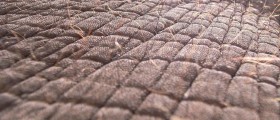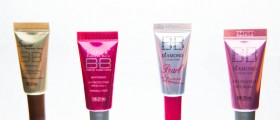Hi,
I have heard a lot of good things about rein a creams and would like to improve the wrinkles on my face, as well as some pigmentation I am suffering from and just to get a more smoother looking skin, basically. This is what retin a is supposed to do for you. But then we you read a bit deeper you see some people are convinced that retin a can in fact cause some of the exact same things people use it against. So faicial spots, hyperpigmentation, and also sun sensitivity. Can retin a cream really do this?
Before I even think about using it I would love to hear from people who have used this cream in the past and what effects you saw from it.
Thanks!
Loading...
Side effects of Reti-A include:
* Burning ans stringing feelings right after applying it.
* Increased redness and worse acne within the first few weeks of using it, which should clear up afterwards.
* Blisters, burning, crusts.
* Inflamed and red eyes.
* Hyper or hypo pigmentation, in other words changes in your pigmentation. These are TEMPORARY and your skin will return back to normal with continued use.
Having said all that, anyone experiencing side effects from Retin-A who is worried should talk to their doctor about what to do about this. Your doctor will best be able to advise you on what to do. If you are not using Retin-A yet, of course it's a prescription product so you will be able to have a good chat about what side effects you may expect before you even begin using it.
Loading...
Yes, it can. After using a Retin-A 1 percent cream on my cleavage area, I noticed my skin became much darker. Now I have to admit that I didn't follow the instructions. Eager to get rid of the age spots I had there and the wrinkles, I just used it every day which I wasn't supposed to do. I then needed treatment with a topical steroid to undo the damage. Moral of the story? I was stupid, don't be like me. Follow the instructions and you should be fine with Retin-A.
Loading...
From what I have read, Retin-A comes with very clear instructions. You need to wash your hands and your face and then dry them before applying it, to name one example. You need to use it at the same exact time of day each day, and you should never use it in larger quantities than you were told. It is pretty clear that many people experience a worsening of their skin condition during the first couple of weeks of use. This is normal too, and you can apparently use a moisturizer for dry skin to help combat flaking, redness, worse acne, that kind of thing.
But this medication also comes in different strengths, and if you are seeing bad side effects, it is possible you were using the wrong strength or you are not using it correctly. So it is important to go back to the doctor who prescribed it to you if you are noticing anything unusual, and they will be able to assess what is causing the side effects, and may implement some changes in the way you apply it or change you over to a different strength. If you see any blistering or discoloration, you are supposed to tell your doctor right away.
In other words, hyperpigmentation is considered to be a side effect and certainly not a normal function of Retin-A as such.
Loading...
Loading...
Loading...
What? No! I've been looking around to find out whether Retin-A can actually cause hyperpigmentation. Try it. Google "can Retin-A lead to hyperpigmentation?" and all you will come up with is results that actually tell you that if you've got hyperpigmentation already, yeah, you should get a Retin-A prescription. In other words, Retin-A is the cure for hyperpigmentation, not a cause. If I understand correctly, Retin-A works by exfoliating your skin pretty deeply, and it actually increases cell turnover, which means your skin will be renewed. Not that I've actually got too many skin issues myself, but the stuff sounds pretty awesome and I think I'll want it for sure when I get a bit older and want some anti wrinkle stuff that's actually worth paying for.
Loading...
Reading what doctors have to say about Retin-A, what I said last week is absolutely correct. Apparently many patients are tempted to use Retin-A too often, in too high a strength, because they expect to see better results more quickly that way, but this is not what happens under those circumstances. It is commonly established that Retin-A can make the skin look worse the first months of use. If you want to see the full range of benefits from Retin-A, you need to use it in the strength prescribed to you and following the schedule recommended, even if you see side effects. Flaking, redness and the increased appearance of wrinkles are all possible. It is not nice to have to deal with such side effects from a cream which you have been told will improve your skin so much, but you need to break through this initial period for a life time of increased collagen production, fewer wrinkles, less sun damage — all the things Retin-A does for your skin. As long as you are well informed about what to expect when you first start using it, Retin-A is one of the best things to use on your skin. It has been more widely studied than almost everything else and really does have the potential to take years off your face.
Loading...
So yes, retin-a can cause facial spots or hyperpigmentation, no matter what anyone else says. It'll be right there on the bit of paper you get with the retin-a if you take the time to read it. Most people will not have any of these side effects or so little that they barely notice but it can happen.
Again, if you read the bit of paper that comes with it, it will say to stop using it the moment you get these things. If you're new to retin-a and haven't had these side effects, don't walk in expecting them because most people just won't. But it's theoretically possible. It's good to be aware of the possible side effect of any medication you are taking so that if - and again it most likely will just not happen to you personally - you do get any of these you know to stop taking it. That is what those bits of paper are in there for.
Loading...
so now my melasma is darker and i have new brown spots all due to retin a.
i'm very upset over this.
Loading...
I've been using retin A for maybe six months now. I already had one stubborn spot that wouldn't go away for years, and maybe some smaller ones that were not that noticable, like light brown freckles. I started with 0.025 but gradually changed to 0.05%. My dark spot wasn't going away so I added glycolic acid 5% cream in the morning. Now I am not sure is it a coincidence but I think my spots are getting darker.
I've read that sometimes melasma is getting darker because it is coming to surface. I am scared that it doesn't get worse.
Does anyone has similar experience. I am still flaking from retin a. I wasn't rushing with the product and I do wear sunscreen, although I wasn't reapplying too often.
I don't know what to do
Loading...
I believe I used to much. So disappointed
Loading...
Yep. Same with me. Retin A absolutely caused hyper pigmentation on my face when I used it 10 years ago, and when I tried it again a few weeks ago. Many people rave about its benefits , so I gave it another shot being very careful to not use too much and to be diligent with sun screen protection and still it gave me a bunch of brown marks on my face. My sister has used Retin A for years ; it works perfectly for her. But it's been a disaster for me. I'm wondering if it's because I have darker skin than she does
Loading...
I just came back from an esthetician and she confirmed what I suspected, darker skin tones should stay away from it because it is too drying and when this happens the skin is more vulnerable to the effects of the sun. And it is true, I find it a challenge to drink enough water daily. I hope this helps.
Loading...















